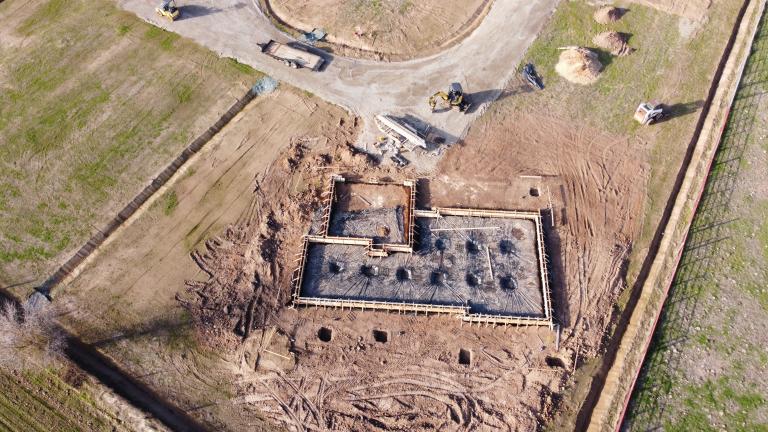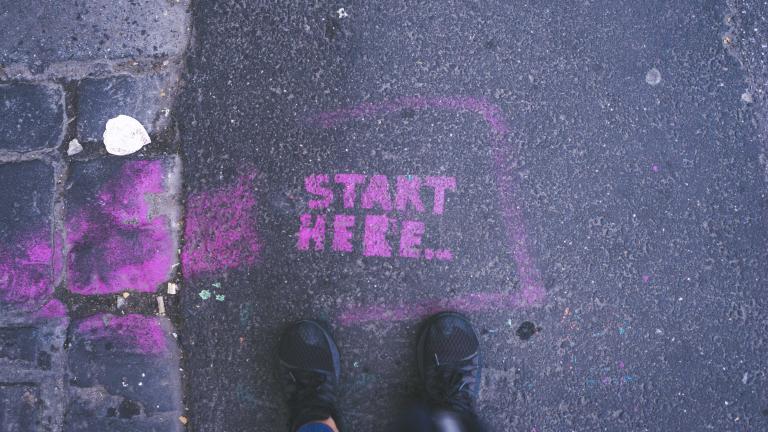When it comes to the actual practice of making one’s life better, it is hard to know where to start. What does better even mean? What does improvement look like? Where do I begin?
A few years ago, the Army developed a mental model of a grand building (think a big courthouse, The Parthenon, or a mansion) supported by pillars. Each of the pillars represent a load-bearing reality. The Army used what they developed to help their personnel understand leadership and effective living.
At The Crossroad, we have adapted the pillars a little to help all of us start to wrestle into practicality the difficult process of improving.
The Foundation
It is important to note at this point that the pillars are not just about improvement. Because, naturally, improvement begins with awareness. So, the pillars help us to measure more accurately where we truly are. Improvement can also be a detriment if it is improperly aimed. So, defining not just what these pillars of progress entail but why we are progressing is essential to their efficacy.

Like any good structure, the best place to begin is not actually the pillars themselves but the foundation.
For a human being trying to live a good life, the foundation is our values. The core of what is important to us. It runs deep and wide, covering the footprint of our structure, setting the parameters for who we are. We build our pillars on top of our values. If our values are ill defined or ignored, our pillars are doomed. They can be as tall as the Tower of Babel, but will meet the same fate. Because, as it were, they are erected on shaky ground.
The Pillars Themselves
When, and only when, our values are clearly defined and understood, there are six pillars upon which we can improve the stability of our structure. They are Physical, Social, Mental/ Emotional, Financial, Spiritual, and Family/Team.

These are the arenas in which our character makes itself known. The arenas we are responsible for stewarding. They are what people see when they look at us, which is another way of saying they are the pillars of leadership.
As we said before, we have to be careful with some of these pillars. In the same way that bigger is not always better for a structure, more is not always the answer for some of these pillars. Instead, we ought to tailor our pursuit to the model set forth by our values, our foundations.
The financial pillar, for example, is not about being rich. It is about stewarding finances. The physical pillar is not about becoming obsessed with working out, at the expense of all else. Nor is it about plastic surgery to look young. It is about taking care of yourself appropriately.
Your social pillar is about how you engage with people around you. Your family/team pillar is about how you work with people around you; your ability to function in an intimate community.
And your spiritual pillar is not about memorizing the entire Bible. It is about trusting God, committing to love, and living in wisdom.
As we seek to improve, these are the areas in which we can most readily focus our growth. The level of fulfillment of our lives will in large part have to do with how well we are stewarding these pillars.
Side note: the pillars are important as six individual columns but also as a whole. When some tragedy hits and your emotional/mental pillar is necessarily wounded, you can lean on your spiritual pillar to help with the added weight (as just one example).
How To Do It
So, how do you do this? Where to start?

The best place to start is to ensure that the foundation is established. If you don’t know your values, the true and meaningful drivers in your life, the place to begin is by exploring those. Head to thecrossroad.net for an exercise in values discovery to get you started.
Assuming your values are set, the way to improve in each of your pillars is slowly and surely. We like to talk about making SMART goals for each pillar. And keeping the timing on them short. Like a month at a time. I’ll save a hundred dollars this month (financial). I will send thank you notes to my team at work before the end of the month (team/family). I’ll work out once a week this month (physical). I’ll join a small group and attend four times this month (spiritual). I’ll host a game night and dinner to serve my friends before the end of the month(social). I will read a book, watch a documentary, or listen to a podcast about a topic important to me once a week (mental/emotional).
This is the reality of progress. Slow and consistent. Full and diverse. It is work. Betterment is not a spectator sport. Improvement is an action item. There is no time to start like the present.












